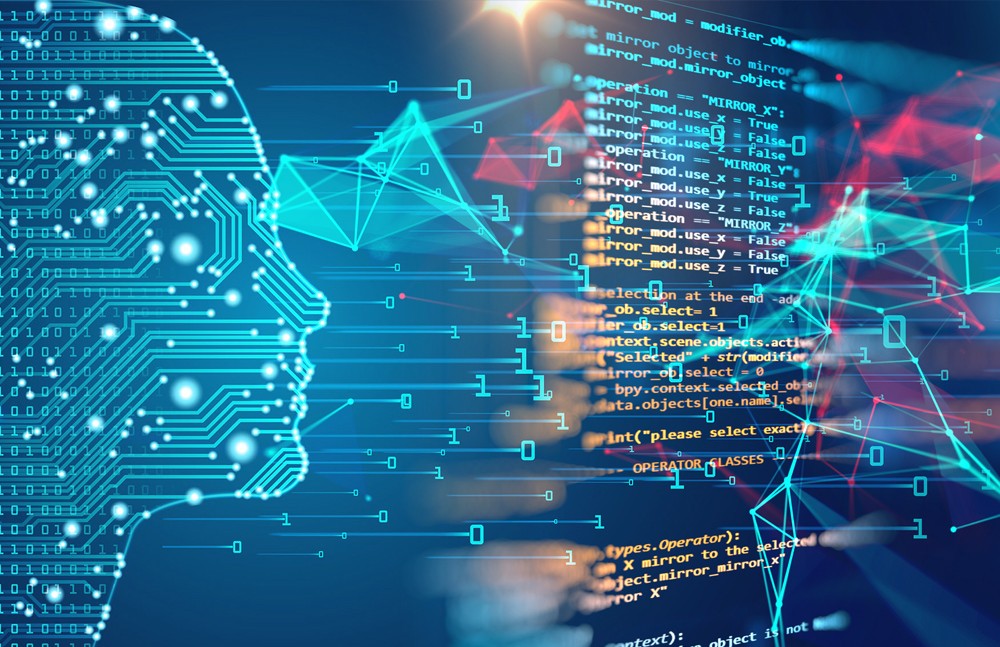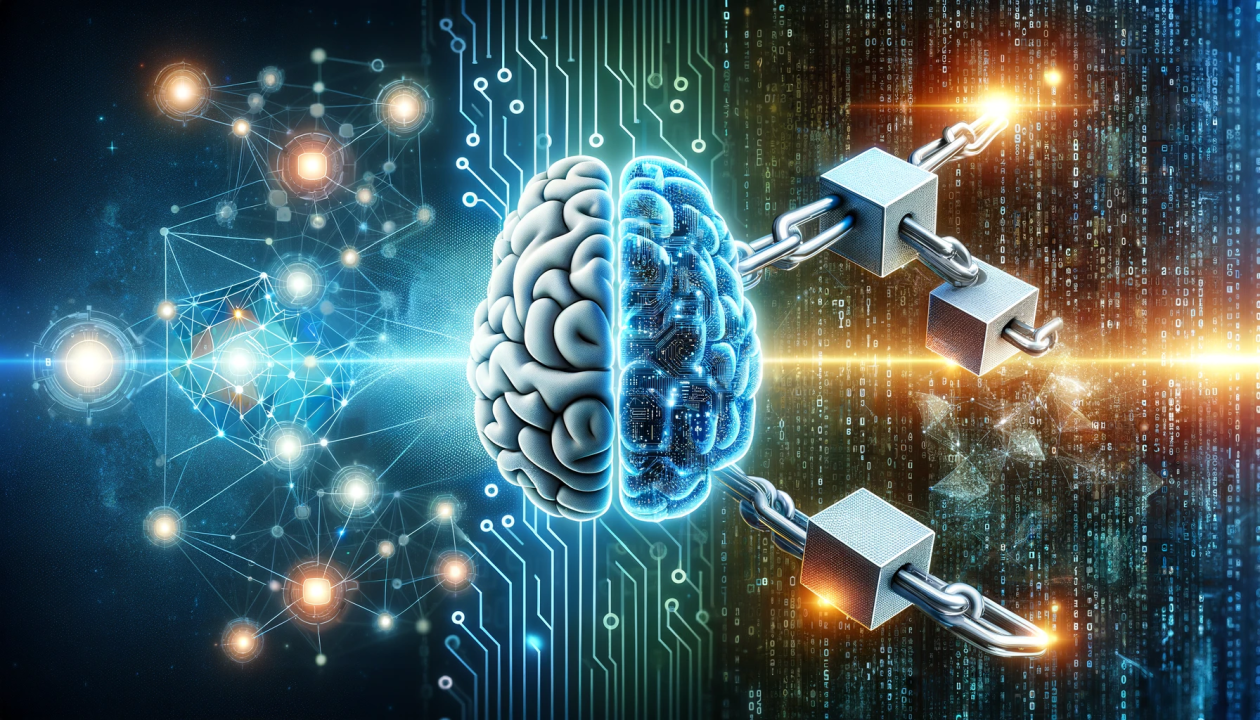Artificial Intelligence (AI) is no longer a futuristic concept—it’s a technology shaping industries and revolutionizing daily life. From healthcare diagnostics to financial predictions, AI’s potential seems limitless. Yet, a critical question remains: can we trust AI systems?
Data bias, lack of transparency, and accountability gaps have often made users wary of AI. This is where blockchain technology, with its robust security and transparency features, steps in as a trust enabler for AI. In this blog, we’ll explore how blockchain is solving trust issues in AI and the transformative potential of this synergy.
Understanding the Trust Issues in AI
Despite its benefits, AI faces significant challenges when it comes to trust. Let’s break these down:
Data Integrity Concerns
AI systems rely heavily on data to function. If the data fed into these systems is tampered with, biased, or incomplete, the AI’s predictions and decisions become flawed. For instance, biased datasets can lead to discriminatory decisions in areas like hiring or loan approvals.
Transparency Problems
AI algorithms often operate as a “black box,” meaning their decision-making processes are opaque. Users, and even developers, might not fully understand why or how an AI system arrived at a particular outcome. This lack of transparency can lead to mistrust, especially in critical applications like healthcare or criminal justice.
Accountability Challenges
When AI systems make errors, identifying responsibility is complex. Is it the developers, the organization deploying the AI, or the data providers? This accountability gap further erodes trust in AI.
What Makes Blockchain a Trust Enabler?
Blockchain technology offers unique attributes that can address the trust issues in AI.
Immutable Ledger
Blockchain records data in a decentralized ledger that cannot be altered without consensus. This ensures that AI data and decisions remain tamper-proof.
Decentralization
Unlike centralized systems, blockchain operates across a distributed network. This eliminates the need for a central authority, reducing the risk of manipulation or single points of failure.
Transparency and Auditability
Blockchain provides a transparent and auditable record of all transactions. This is ideal for tracking AI processes and ensuring accountability.
How Blockchain Enhances AI Trust
Blockchain and AI complement each other in several ways to create a more secure and transparent ecosystem.
1. Secure Data Sharing for AI Models
AI systems often require large datasets, which are shared across organizations. Blockchain ensures that this data sharing happens securely and privately. By encrypting and storing data on blockchain, organizations can access only the data they need without exposing sensitive information.
Example: Blockchain-based AI data marketplaces allow companies to share data while maintaining ownership and privacy. Ocean Protocol is a notable platform in this domain.
2. Improving AI Decision Transparency
Blockchain can record every step of an AI system’s decision-making process, creating a tamper-proof audit trail. This makes it easier to understand how and why a decision was made, enhancing user trust.
Example: In healthcare, this could mean tracking how an AI system analyzed patient data to recommend a treatment plan, ensuring doctors can verify its accuracy.
3. Enabling Verifiable AI Training Data
AI models are only as good as the data they’re trained on. Blockchain can store training datasets with timestamps and authenticity checks, ensuring that AI models are built on reliable data.
Example: Using blockchain to verify the source and quality of training data can prevent the use of biased or outdated information in AI development.
4. Ensuring Fairness in AI Algorithms
Blockchain can help certify AI algorithms by storing and verifying updates in real-time. This ensures that changes to the algorithm are documented and compliant with fairness standards.
Example: Governments or regulatory bodies can use blockchain to monitor the fairness of AI systems in sectors like education or hiring.
Applications of Blockchain-Enabled AI Trust
The integration of blockchain and AI is already transforming several industries.
Healthcare
AI systems in healthcare analyze patient data to provide diagnostic insights. With blockchain, patient data can be securely stored and shared while ensuring that the AI operates transparently.
Finance
In finance, AI-driven systems are used for credit scoring and fraud detection. Blockchain ensures that these systems are fair and accountable, helping build trust with users.
Supply Chain
AI optimizes logistics and monitors supply chains, but trust is essential to ensure authenticity. Blockchain can verify every step of the process, from production to delivery, ensuring that AI systems operate transparently.
Smart Contracts and Autonomous Systems
Blockchain-AI integration can create more reliable smart contracts and autonomous systems by ensuring that they are tamper-proof and operate as intended.
Challenges in Blockchain and AI Integration
Despite their potential, integrating blockchain and AI is not without challenges.
Scalability Concerns
Blockchain networks, especially public ones, can be slow and resource-intensive. When paired with AI, which requires high-speed data processing, scalability becomes a significant challenge.
Complexity of Implementation
Both blockchain and AI are complex technologies. Integrating them requires expertise and significant resources, making it a hurdle for many organizations.
Regulatory and Ethical Questions
The integration of blockchain and AI raises regulatory and ethical questions. For example, how do privacy laws apply when personal data is stored on a blockchain? These issues need to be addressed to enable widespread adoption.
Blockchain and AI Working Together
The synergy between blockchain and AI holds immense potential.
Emerging Trends
- Decentralized AI Models: Blockchain can enable decentralized AI systems that operate without a central authority, ensuring greater transparency and security.
- AI-Driven Blockchain Governance: AI can optimize blockchain operations, such as automating consensus mechanisms.
Role of Edge Computing
Edge computing, which processes data closer to the source, can further enhance blockchain-AI integration by reducing latency and improving efficiency.
Conclusion
Trust is the cornerstone of technology adoption, and the partnership between blockchain and AI is a significant step toward building it. Blockchain’s transparency, security, and decentralization address critical trust issues in AI, ensuring data integrity, transparency, and accountability.
As these technologies continue to evolve, their integration will unlock new possibilities in industries like healthcare, finance, supply chain, and beyond. To fully realize this potential, organizations must invest in innovation, address regulatory challenges, and embrace the future of blockchain and AI together.







